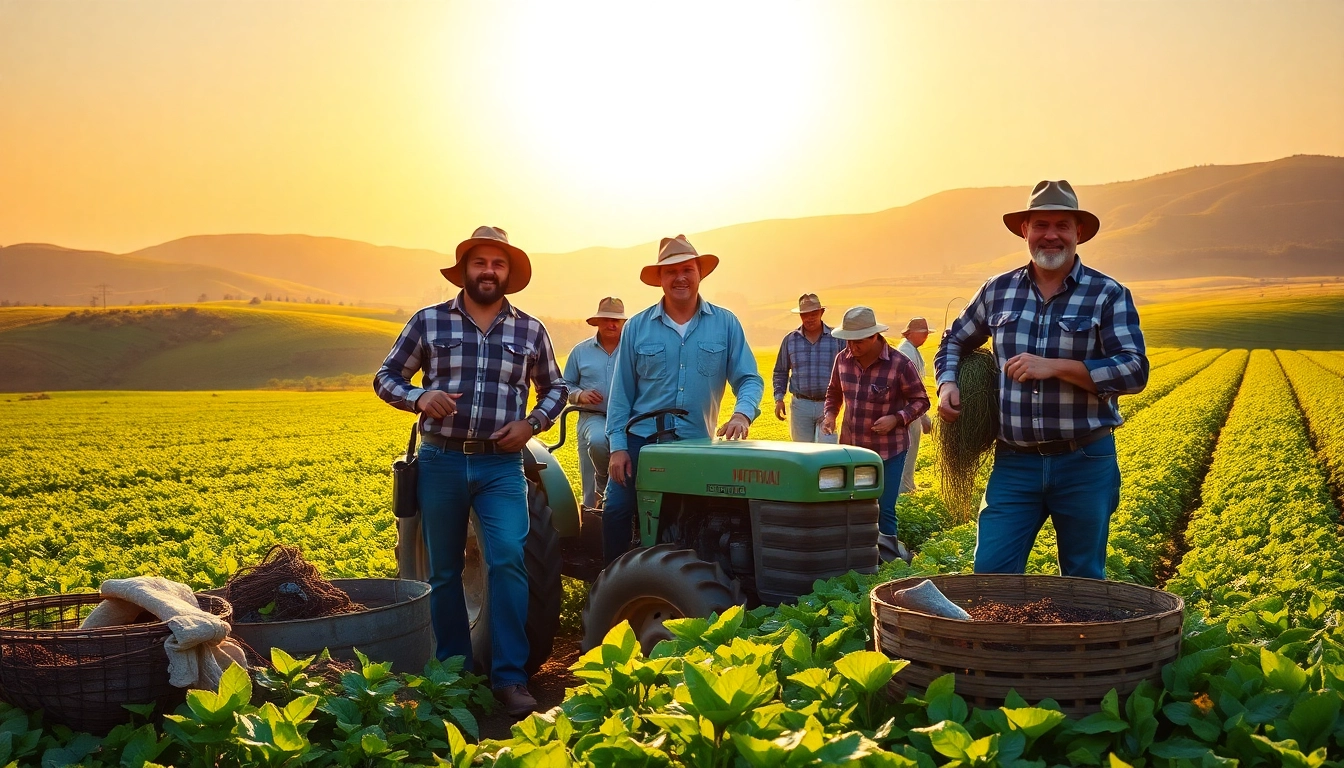Understanding Agriculture Law: Basics and Definitions
Agriculture law, also known as Ag Law, encompasses a diverse range of legal issues related to the production, distribution, and sale of agricultural products. It governs everything from contracts between farmers and suppliers to environmental regulations impacting agricultural operations. Understanding the fundamental principles of agriculture law is essential for farmers, agribusinesses, and food producers who want to navigate the complexities of the agricultural sector effectively.
What is Agriculture Law?
Agriculture law is a field that addresses laws and regulations surrounding agricultural practices. This includes farming operations, livestock management, crop production, and the sale of agricultural products. It also encompasses the legal aspects of agricultural finance, including loans, grants, and insurance specific to the agricultural sector. Additionally, agriculture law intersects with labor laws, environmental regulations, and intellectual property rights concerning genetically modified organisms (GMOs) and agricultural chemicals.
Key Areas Covered by Agriculture Law
Several critical areas comprise agriculture law, including:
- Agricultural Cooperatives: Organizations formed by farmers to collectively process and market their products, providing legal guidance on the cooperative’s governance.
- Food Safety Regulations: Laws ensuring that food produced is safe to eat, including the standards for pesticide and fertilizer use.
- Environmental Regulations: Laws governing land use, water rights, and pollution to protect natural resources affected by agricultural practices.
- Agricultural Finance: Regulations surrounding loans and subsidies that support farmers’ operations and investments.
- Labor Laws: Regulations governing the employment of farmworkers, including wages, safety standards, and working conditions.
Importance of Agriculture Law in Today’s World
In an era of increasing food demand and heightened environmental concerns, agriculture law plays a pivotal role in ensuring sustainable practices in the agricultural sector. It oversees compliance with regulations that affect food safety, environmental sustainability, and fair labor practices, thus safeguarding consumer interests and protecting the livelihoods of farmers.
The Role of Agriculture Law in Agricultural Operations
Regulatory Compliance for Farmers
Farmers must adhere to a myriad of regulations at local, state, and federal levels. This compliance often involves navigating complex legal requirements related to land use, health, safety, and environmental protection. Non-compliance can lead to severe penalties, including fines and restrictions on operations. For instance, farmers must comply with the Environmental Protection Agency (EPA) regulations regarding pesticide and fertilizer usage, ensuring that they do not harm the environment or public health.
Environmental Considerations in Agriculture Law
The intersection of agriculture and environmental law is critical in promoting sustainable practices. Agricultural operations impact water quality, air quality, and biodiversity. Laws such as the Clean Water Act and Clean Air Act impose specific limitations on emissions and waste disposal connected to farming activities. Farmers must implement best practices to minimize their environmental footprint and comply with these regulations while maintaining productivity.
Significant Legal Challenges Faced by Agricultural Producers
Farmers face numerous legal challenges ranging from contract disputes with suppliers to navigating complex zoning laws. One common issue is the liability resulting from agricultural runoff, which can contaminate local water sources. Farmers must be proactive in addressing these potential liabilities through legal compliance and risk management strategies, which may include consultation with legal experts in agriculture law.
Contract Law and Agriculture: What You Need to Know
Types of Contracts in Agriculture Law
Various contracts are integral to agriculture law, including:
- Purchase Agreements: Contracts governing the sale of crops and livestock, specifying quantities, prices, and delivery terms.
- Leases: Agreements for renting land or equipment, outlining the responsibilities of both landowners and tenants.
- Service Contracts: Contracts with service providers, such as equipment maintenance or pest control services.
- Supply Agreements: Contracts with suppliers of seeds, fertilizers, and other necessary inputs for farming.
Negotiating Agreements: Best Practices
Negotiating contracts in agriculture requires awareness of market conditions and legal rights. Key practices include:
- Conducting thorough research on market prices to ensure fair terms.
- Understanding local regulations that might affect contract terms.
- Diligently reviewing all contract clauses to avoid unfavorable terms later.
- Consulting with legal experts to draft or review contracts before signing.
Enforcement of Agricultural Contracts
The enforcement of contracts in agriculture can involve disputes often resolved through mediation or arbitration. In cases of breach, farmers might need to seek legal remedies such as compensatory damages or specific performance depending on the contract’s nature.
Recent Developments in Agriculture Law
Policy Changes Affecting Agriculture Law
Recent shifts in policy, particularly in response to climate change and food security, have driven updates in agriculture law. These changes often aim to promote sustainability and addressing issues such as land use, water availability, and carbon emissions associated with farming practices.
Notable Case Studies in Agriculture Law
Past legal cases have significantly impacted agriculture law, shaping regulations and setting precedents. For example, cases involving water rights have clarified the legal framework governing water usage for irrigation versus environmental conservation. These cases often highlight the complexity of balancing agricultural needs with environmental stewardship.
Future Trends in Agricultural Legal Frameworks
The future of agriculture law appears to be increasingly interconnected with technology. Innovations such as precision farming and genetically modified crops are prompting new legal challenges, particularly regarding intellectual property rights. Additionally, the movement toward organic farming and sustainable practices is likely to lead to further regulatory developments, focusing on environmental conservation and food safety.
Finding Legal Representation in Agriculture Law
Choosing the Right Lawyer for Agriculture Law Issues
When seeking legal representation in agriculture law, it is vital to choose a lawyer with specific knowledge and experience in agriculture-related cases. Look for a legal professional who understands the unique challenges faced by farmers and agribusinesses, including regulatory compliance, contract negotiations, and environmental liabilities.
Resources for Agricultural Legal Assistance
Farmers and agribusinesses can access various resources for legal assistance, including:
- The American Agricultural Law Association: Provides networking opportunities and resources for agriculture law professionals.
- The National Agricultural Law Center: Offers information and research related to agricultural law and policy.
- Local agricultural extension offices: Offer resources and guidance related to state-specific agricultural laws.
Networking within the Agricultural Legal Community
Networking is essential in agriculture law. Joining relevant associations and participating in workshops or seminars can create opportunities for farmers and legal practitioners to share insights, updates on legal changes, and best practices for navigating agriculture law.



